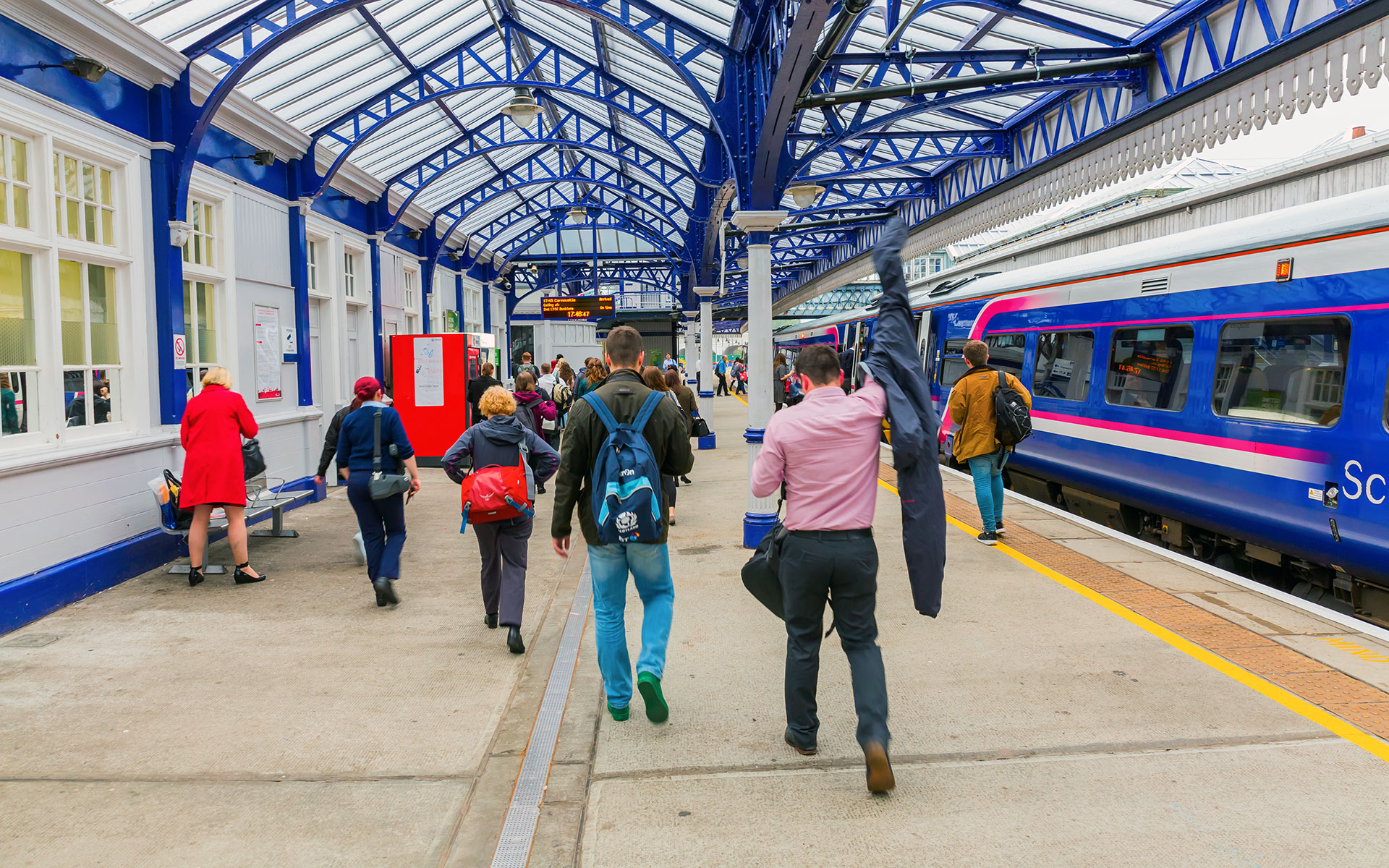Britain and Ireland Timetable Update: Rail Service Amendments from December 2018
The timetable changes in December 2018 will see the reinstatement of a second Stirling to London King's Cross direct train (photo © Madrabothair / dreamstime.com).
Rail schedules across Europe are revamped in December each year with the new timetables starting this year on Sunday 9 and Monday 10 December. Here’s a quick summary of just a few of the changes to train services in the United Kingdom and Ireland which have caught our eye over the last day or two.
CrossCountry trains for early birds
There will be a new early morning direct train from Leeds to Glasgow. The present first direct train between the two cities leaves Leeds at 08.07, but with the new timetable CrossCountry introduces a 05.31 departure for early birds.
Another novelty is an early morning direct train from York to Southampton. In the current timetable the first direct service from York to Southampton is at 08.27. That changes in the new schedules when CrossCountry add in an additional 06.20 train to Hampshire, due to reach Winchester at 10.54 and Southampton at 11.17.
New Pennines link
A big plus is a new hourly direct train service from Preston to York and vice versa. Until now, travellers between the two cities had to change trains in Manchester, but rail operator Northern is revamping its trans-Pennine timetables to give a regular direct service from Preston, Blackburn and Burnley to York.
Scottish connections
On the East Coast route, LNER will reinstate the early morning direct train from Stirling to London King’s Cross with the new timetable. This train was withdrawn in late August, but happily returns from Monday 10 December. Departure from Stirling is at 05.26, reaching London at 10.49. The return journey to Stirling will leave London at 15.00. The only other direct train on the Stirling-London route is the daily Highland Chieftain service from Inverness to London. Its timings are unchanged in the new schedules.
As part of a rolling programme of upgrades to train services in the Central Belt, Scotrail will launch yet another direct route from Glasgow to Edinburgh on Monday 10 December. The existing service from Glasgow Queen Street via Cumbernauld to Falkirk Grahamston will be doubled in frequency (from hourly to half-hourly) with the trains extended beyond Falkirk to Edinburgh Waverley. This gives a new direct link from Cumbernauld to the Scottish capital, with trains running every 30 minutes and a journey time of under 50 minutes.
London’s ghost train
Chiltern’s weekday Parliamentary service from Paddington to High Wycombe runs for the last time on Friday 7 December. This train is normally non-stop, but on the final run there will be additional stops at South Ruislip, Gerrards Cross and Beaconsfield. However, devotees of rare routes will love Chiltern’s new oddball offering which starts on Monday 10 December. There will be a new direct train to High Wycombe from West Ealing, departing weekdays at 11.47. The train will go via the Greenford branch line, though without any intermediate stops.
Irish improvements
The timetable for the Dublin to Sligo route is recast from Sunday 9 December, bringing some great improvements. Apart from significant re-timings, there will be an extra morning train from Dublin Connolly to Sligo, with an extra evening train from Sligo back to the capital.
The Dublin to Maynooth service will be much improved, with an half-hourly schedule introduced for much of the day, seven days a week. On the northern commuter route, there will be three additional trains each day from Dublin to Drogheda and back.
In Northern Ireland, the new timetables will see additional peak-time trains on the busy route from Portadown to Belfast.





About The Authors
Nicky Gardner and Susanne Kries
Nicky and Susanne manage hidden europe, a Berlin-based editorial bureau that supplies text and images to media across Europe. From 2005 to 2023, they were the editors of hidden europe magazine. Nicky and Susanne are dedicated slow travellers and the authors of the book Europe by Rail: The Definitive Guide. The 18th edition of that book was published in October 2024. You'll find a list of outlets that sell the book on this website. Susanne and Nicky also provide consultancy to the rail industry on fares, routes and ticketing. Between them, they know a thing or two about rail APIs.